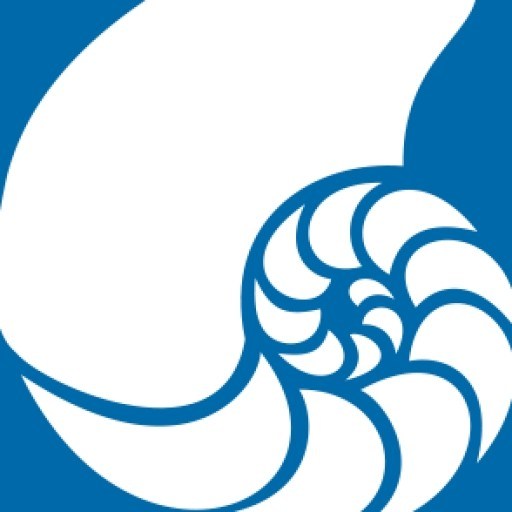Photos of university / #waldenuniversity
Community Health Education and Advocacy at Walden University prepares students to become effective leaders and change agents in public health. The program focuses on equipping learners with the knowledge and skills necessary to promote health and wellness within diverse communities through education, policy advocacy, and program development. Students explore foundational concepts of community health, including epidemiology, health promotion strategies, cultural competence, and program evaluation. The curriculum emphasizes the importance of advocacy efforts to influence health policies and create sustainable health initiatives. Throughout the program, students engage in practical experiences that enable them to design, implement, and assess community-based health interventions. They learn to collaborate with stakeholders such as government agencies, non-profit organizations, healthcare providers, and community members to address health disparities and improve access to care. The program also emphasizes ethical considerations and the social determinants of health, ensuring graduates are prepared to tackle complex public health challenges with sensitivity and professionalism. Graduates of the Community Health Education and Advocacy program can pursue careers in health education, community outreach, policy development, and health promotion at local, state, and national levels. The program is suitable for individuals passionate about making a positive impact on community health and seeking advanced training to lead initiatives, advocate for populations, and contribute to the development of equitable health systems. Walden University’s flexible online format allows students to balance their studies with professional and personal responsibilities while engaging with expert faculty and a network of fellow learners dedicated to improving public health outcomes.
The Health Services (Community Health Education and Advocacy) program at Walden University is designed to prepare students for impactful leadership roles in promoting health and wellness within diverse communities. This comprehensive program provides learners with the knowledge and skills necessary to develop, implement, and evaluate health education initiatives, focusing on empowering individuals and groups to make informed health decisions. Throughout the program, students explore the foundational principles of public health, health promotion strategies, and the social determinants of health, enabling them to understand the complex factors that influence health outcomes.
The curriculum emphasizes community engagement and advocacy, teaching students how to collaborate effectively with stakeholders, policymakers, and community members to address health disparities and foster sustainable health improvements. Courses cover topics such as program planning and evaluation, health communication, cultural competence, and ethical considerations in health education. Students are encouraged to apply theoretical concepts through practical, real-world projects, preparing them to design impactful interventions tailored to specific populations.
In addition, the program focuses on research methodologies and data analysis to support evidence-based decision making. Students learn to assess community needs, develop strategic initiatives, and measure the effectiveness of health programs. Emphasizing ethical practice and cultural sensitivity, the program aims to cultivate professionals who can advocate for health equity and implement policies that promote accessible, quality health services for all.
Graduates of this program are equipped to work in diverse settings such as public health departments, nonprofit organizations, healthcare systems, and community-based agencies. They will be prepared to serve as health educators, program coordinators, advocates, and policy advisors, contributing to the improvement of community health outcomes. Walden University's flexible online format allows students to balance their studies with personal and professional commitments, providing a supportive environment for lifelong learning and community impact.
Program requirements for the Health Services (Community Health Education and Advocacy) degree at Walden University typically include the completion of foundational coursework in community health principles, health education strategies, and advocacy techniques. Students are expected to engage in advanced studies that cover epidemiology, health promotion, and behavioral health theories to prepare for leadership roles in community health settings. The program often involves a combination of online coursework, interactive discussions, and practical assignments designed to enhance skills in planning, implementing, and evaluating health education programs. Candidates may need to demonstrate proficiency in research methods relevant to public health and complete a professional practicum or capstone project to apply theoretical knowledge in real-world community health environments. Admission requirements usually encompass holding a relevant bachelor's degree, submitting academic transcripts, providing letters of recommendation, and stating a clear personal statement of career objectives in community health advocacy. Additionally, applicants might need to have prior experience or a background in health sciences or related fields. The program duration varies depending on enrollment status and the pace of individual study but generally spans around 12 to 24 months. Continuous assessment through quizzes, essays, case studies, and presentations is standard to ensure mastery of key concepts. Graduates of this program are equipped to pursue roles such as community health educators, health program coordinators, or policy advocates and are expected to uphold ethical standards in health promotion efforts. Maintaining good academic standing often requires achieving a minimum grade point average, typically around 3.0 on a 4.0 scale, and actively participating in program-related activities and discussions. Overall, the program aims to develop well-rounded professionals capable of leading and advocating for improved community health outcomes through evidence-based strategies and culturally competent practices.
The financing of the Health Services (Community Health Education and Advocacy) program at Walden University primarily involves tuition and fees payable by students. Tuition rates are structured on a per-credit-hour basis, with the total program credits determining the overall cost. Currently, the tuition per credit hour is set at a standard rate, which may vary slightly from year to year. Additional fees may include registration, technology, and assessment fees, which are charged separately and can contribute to the total expense of the program.
Walden University offers various financial aid options to support students pursuing their degrees. Students are encouraged to explore federal student aid programs, including Stafford Loans and Pell Grants, which can significantly offset the costs. The university also provides private loan options through approved lending partners, offering flexible repayment plans tailored to student needs. Scholarships and assistantships may be available for eligible students, providing partial tuition coverage based on merit or need.
Many students choose to finance their education through employer tuition reimbursement programs, which can cover part or all of their educational expenses if their employer offers such benefits. Walden University also offers payment plans that allow students to spread their tuition payments over multiple installments, reducing immediate financial burden.
It's important to note that the total cost of the program can vary depending on the duration of study and whether students enroll full-time or part-time. International students should also consider additional costs such as visa-related expenses and health insurance. The university's financial aid office provides detailed guidance and counseling to help students understand available options and develop personalized financial plans.
Overall, Walden University aims to make education accessible by providing comprehensive information about financing options, including federal aid, private loans, scholarships, and flexible payment plans, enabling students to complete their Health Services (Community Health Education and Advocacy) program with manageable financial support.
The Health Services (Community Health Education and Advocacy) program at Walden University offers students an in-depth exploration of community health issues, emphasizing the development of effective health education strategies and advocacy skills. The curriculum is designed to prepare students to work in diverse settings, including public health agencies, non-profit organizations, and healthcare facilities, addressing critical health concerns at the community level. The program focuses on evidence-based practices, health promotion, disease prevention, and health policy advocacy, equipping graduates with the tools necessary to influence positive health outcomes. Students engage in coursework that covers topics such as health education program planning, cultural competence, social determinants of health, and health communications. Practical components often include case studies, project-based learning, and, where applicable, practical field experiences to enhance real-world application of learned skills. The program aims to develop professionals who can advocate for vulnerable populations, implement effective health education interventions, and contribute to policy changes that improve community health standards. Walden University emphasizes a flexible online learning environment, allowing students to balance their studies with personal and professional commitments. Graduates of this program are prepared for leadership roles in health promotion and community outreach, armed with a comprehensive understanding of the social, behavioral, and environmental factors that influence health. The program also encourages lifelong learning and professional development, supporting students' career advancement in public health fields.






